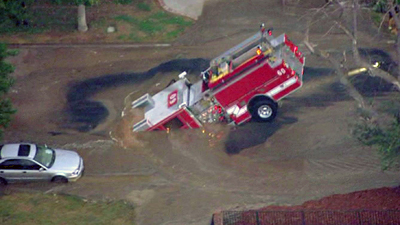Few topics today are generating as much discussion as the seemingly insatiable demand for mobile data and how our country is going to keep pace with it. The United States has set a national goal to provide 98 percent of Americans with broadband access within the next five years. LightSquared is stepping up to help make this a reality. We are contributing $14 billion in private investment over the next eight years to build a nationwide wireless broadband network using 4G-LTE technology integrated with satellite coverage. This represents a $14 billion private sector-not government-investment in America’s infrastructure.
The deployment and management of the LightSquared network will, in turn, create new jobs. We expect to generate more than 15,000 direct and indirect jobs in each of the next five years. And that’s just the beginning of what the LightSquared network will help bring to California and across the country.
LightSquared will offer network capacity on a wholesale-only basis. This is a dramatic departure from the current vertically integrated model in the wireless industry, and it will open the broadband market to new players such as retailers, cable companies, and device manufacturers, to name a few. This means that end users – consumers like you – will enjoy the benefits of innovation, increased competition, and choice.
Last, but not least, the LightSquared integrated 4G-LTE-satellite network will provide much-needed access to consumers, businesses, healthcare facilities, tribal communities, and public safety agencies throughout rural America. Across the country, we will serve critical public sector needs such as emergency preparedness and seamless communications in times of crisis.
One of the reasons we are so committed to bringing wireless connectivity to the underserved rural United States was seen in action this past spring. As storms and a tornado ripped through the south, websites were posting potentially lifesaving real-time information. But because broadband Internet access and adoption in Alabama is below the national average, many residents missed out on the advance warning. This is unacceptable. The United States should be the global leader in delivering wireless broadband to all of its citizens, regardless of whether they live in rural Alabama or downtown Los Angeles.


